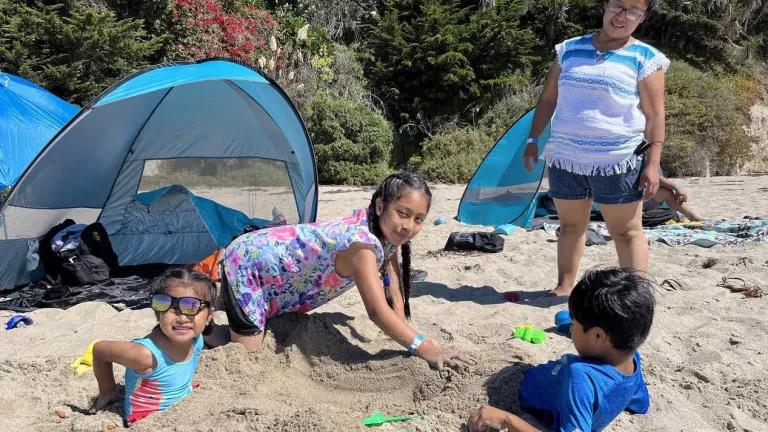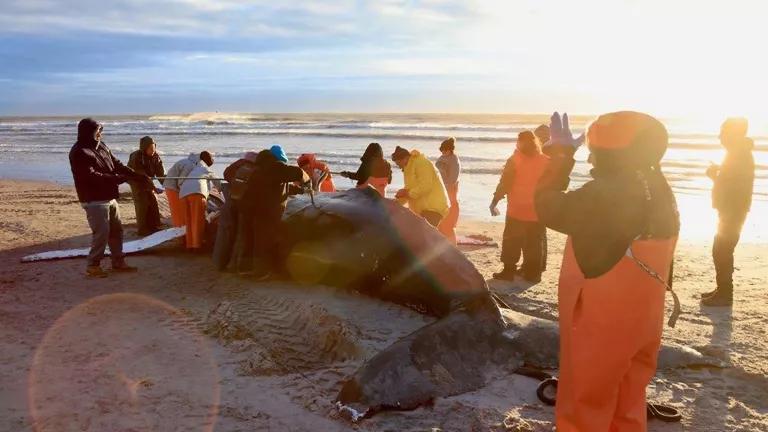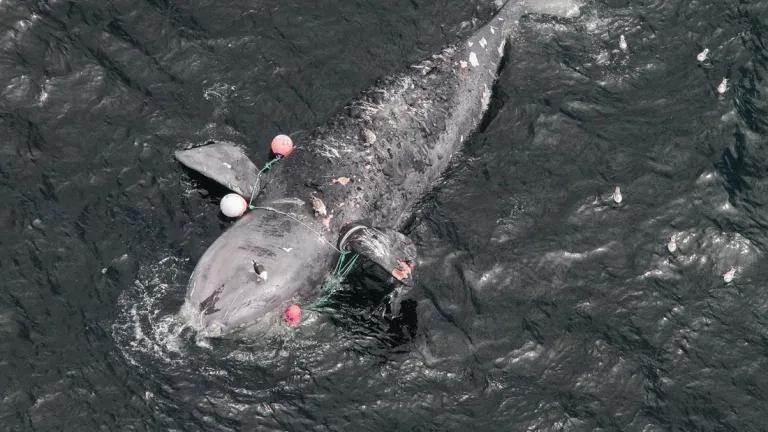Oceans S.O.S.

This Friday is World Oceans Day, a good chance to recognize all the challenges for our oceans—and how we’ll rise to them.
This Friday marks World Oceans Day, an opportunity to celebrate the essential bodies of water that cover two-thirds of this place we call home. We acknowledge the very critical and life-sustaining functions the oceans serve for everyone on this planet—whether it’s providing food for a billion people who rely on fish as their main source of animal protein or producing about half of the world’s oxygen. This day also gives us a chance to understand how this immense and priceless resource has never been more threatened than it is right now—and how it should inspire us to do what we can to protect it and everything it nurtures and supports.
One big threat on our radar is the Trump administration’s shortsighted and alarming proposal to open up almost all our waters for offshore oil and gas drilling. The plan is hugely unpopular among Americans, but polls have not yet deterred the administration’s vision to ravage our beautiful coastlines with oil rigs. Moreover, this move came at the heels of the announcement to toss out the safety procedures and regulations that are necessary on offshore drilling projects—the very checks we need to make sure oceans and coasts stay protected.
The risks to the ocean and our communities are stark. I saw the utterly devastating effects of an oil spill firsthand during the BP Deepwater Horizon explosion in 2010, when 200 million gallons of oil were pumped into the Gulf of Mexico for a harrowing span of 87 days. There were pelicans covered completely in black and clumps of oil in the water and on the beaches that no amount of chemicals could disperse. The effects of it still linger today, and we may not know just how ecologically devastating the oil spill was to the Gulf for another 30 to 40 years.
Another dangerous and deadly threat to ocean life comes before the actual oil drilling: seismic blasting. It’s a way that oil companies look for fossil fuel deposits under the ocean floors. They shoot deafeningly loud blasts of compressed air from ships, which give them ideas about where to drill, and they do this every 10 seconds, for months.
For marine life, this is like hearing a dynamite explode in your home, over and over again, but you can’t leave. The effects, as you can imagine, are incredibly harmful to not only mammals like whales who sing and use sounds to communicate but also to smaller creatures like fish and shellfish. It’s even deadly for zooplankton, the backbone of the diet of countless species.
And, more recently, we have been hearing more and more about the problem of plastics and trash. There are literally floating islands of trash in all the world’s oceans, and we’re beginning to see the fatal effects on ocean life, with whales’ bodies washing ashore most recently in Thailand and Spain.
These are just three of the many immediate challenges that the oceans are facing right now—there’s also acidification from climate change, and overfishing—and it’s imperative that we do all we can to address these issues head-on.
But here’s the good news: Oceans are extremely resilient, and even given half a chance, they have shown us time and again that they can rebound. Look to the recent population boom in humpback whales, which have finally grown in number after being hunted to near extinction. And look to the fact that thanks to the Magnuson-Stevens Act, the number of stocks on the overfishing list are at an all-time low.
The lesson here is simple. We need to protect nature and give nature a chance to bounce back. At NRDC, we do this by preventing destructive actions from occurring in the first place. We will take on the Trump administration if they open up our vulnerable coastlines to offshore drilling or roll back protections for our marine national monuments, like the Northeast Canyons and Seamounts Marine National Monument. We will take legal action if the government passes legislation to allow for seismic blasting in the Atlantic. And we will advocate for marine life as we have done in the past: by working with states to make the economic case for banning single-use plastic bags as we did in California, by fighting climate change, and by making sure the ocean-conservation measures we have in place do exactly what they’re meant to do and aren’t rolled back.
So, this World Oceans Day forward, remember that this important resource needs our attention, now more than ever. Help us protect this important resource by speaking up for it.



